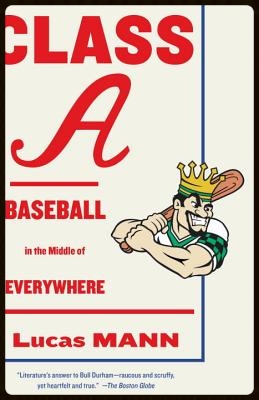Every year it’s the same struggle: three days, hundreds of panels, SO many amazing booths at the bookfair, and a whole host of offsite readings. Quick! Someone print the schedule and grab a highlighter… except who really has the time for that?
Do you love small press publishing? Or, our amazingly talented GMU alumni and extended network of writers? Or, are you just trying to chart the perfect path down the myriad of aisles at the bookfair?
Worry not, we’ve got just the line-up to ensure your #AWP19 success.
Wednesday
Reading: Tupelo Quarterly & Fordham University Press: A Reading & Party
Featuring professor Peter Streckfus
Wednesday, March 27, 7-9 p.m.
Taborspace, 5441 SE Belmont Street, Portland, OR
A celebration of Tupelo Quarterly’s contributors and Fordham University Press’s most recent authors, featuring original poetry and prose by Victoria Chang, Kara Candito, Mary Biddinger, Rebecca Hazelton, Karyna McGlynn, Jennifer S. Cheng, and others.
Thursday
EVENTS
** Stillhouse Press Reading & Reception **
4:00 - 6:00 pm
Rose City Book Pub
In honor of five amazing years of publishing Stillhouse Press will host a reading and reception, featuring authors Anne Panning (Dragonfly Notes: One Distance and Loss) and Anita Felicelli (Love Songs for a Lost Continent).
In Memory of Robert Bausch: A Reception & Celebration
6:30 - 8:00pm
Broadway Room, Portland DoubleTree, Level 1
Join George Mason University in paying tribute to the life and work of Robert Bausch, a three-time Mason alum, award winning novelist, and beloved teacher.
PANELS
** Cheating on Poetry: On Writing Nonfiction, Too **
9:00 - 10:15 am
C123, Oregon Convention Center, Level 1
Join Stillhouse author Anna Leahy (Generation Space: A Love Story) and fellow poets for a conversation on what it means to adopt a second (and very different) genre: nonfiction. Discussion includes craft, form, syntax, literary influences, MFA limitations, and what exactly led these poets to creative nonfiction.
A Woman’s Rites of Passage
9:00 - 10:15 am
E141-142, Oregon Convention Center, Level 1
Led by Mason alums Emily Heiden (MFA ‘15), Rajpreet Heir (MFA ‘14), Jessica Szalay (MFA ‘15), and nonfiction professor, Kyoko Mori, this panel seeks to acknowledge and highlight key topics in women’s writing which are often ignored, such as periods, bras, babies, and more.
Creating Discrimination & Harassment Policies in the Era of #MeToo
9:00 - 10:15 am
Portland Ballroom 252, Oregon Convention Center, Level 1
The leaders of several literary centers, including Mason Creative Writing director and professor, Gregg Wilhelm, come together to discuss their own policies, how they were created and implemented, and how we can all strive to create safer literary spaces for women.
Behind the Curtain: The Editors Speak
10:30 - 11:45 am
Portland Ballroom 253-254, Oregon Convention Center, Level 2
As writers know too well, getting past the submission stage can be incredibly frustrating, difficult, and confusing—especially when it results in a pile of rejection letters.What went wrong? You wonder. And, How can I make it better? Join Emily Nemens, editor of the Paris Review, and five of the top literary magazine editors in the country to get those questions answered and learn more about the submissions process.
How Literary Magazines Cultivate Meaningful Inclusivity
3:00 - 4:15 pm
B116, Oregon Convention Center, Level 1
If you’re wondering how to go about welcoming and publishing a more diverse array of literary voices, this panel of editors will discuss how best to adjust your branding, staffing, opportunities and editorial choices to actively support and attract authors of color.
A Reading of Free Verse Edition Poets
Featuring Tracy Zeman, MFA ’05, and professors Jennifer Atkinson and Eric Pankey.
5:30-7 p.m.
The Lab @ The Jupiter Hotel, 800 E. Burnside Street, Portland, OR
Free Verse Editions is proud to sponsor a reading by an exciting array of talent: Jennifer Atkinson, Matthew Cooperman, Elizabeth Jacobson, Ger Killeen, L.S. Klatt, Peter Kline, Chris Kondrich, Eric Pankey, Brittany Perham, Ethel Rackin, Siobhan Scary, Cole Swensen, Jon Thompson, and Tracy Zeman.
Tar River Poetry's 40th Anniversary/Iris Press Reading Featuring Mason alum Lana K.W. Austin
6:15 p.m.
Celebrate Tar River Poetry's 40th anniversary and Iris Press's continued publishing success at a reading featuring featuring Luke Whisnant, Tina Barr, Michael Spence, Susan O'Dell Underwood, Amy Wright, Karen Head, Dan Veach, and Lana K. W. Austin.
#AWP19 Keynote Address by Colson Whitehead
8:30 - 10:00pm
Oregon Ballroom, Oregon Convention Center, Level 1
Listen to the annual AWP Keynote Address by the #1 New York Times Bestselling author of The Underground Railroad and winner of the National Book Award and the Pulitzer Prize, Colson Whitehead.
The #AWP19 Book fair, complete with some of our favorites highlighted!
Friday
PANELS
** Going Long: Editors & Writers of Longform Nonfiction in Conversation **
9:00 - 10:15 am
E146, Oregon Convention Center, Level 1
A panel of editors and writers, including Stillhouse’s Anne Leahy (Generation Space: A Love Story), discuss concerns and possibilities when editing, publishing and selling the longform nonfiction genre in a time of quick reads and short attention spans.
** Dystopias and Utopias in Contemporary Asian American Literature **
9:00 - 10:15 am
B116, Oregon Convention Center, Level 1
Four female writers, including Stillhouse’s Anita Felicelli (Love Songs from a Lost Continent), combine brief readings, a Q&A, and an audience writing exercise to draw attention to the overlooked sub-genre of dystopian and utopian visions in Asian American works.
Writing Outside the Big 5: Practical Tips for Authors Working with Indie Presses
10:30 - 11:45 am
B117-119, Oregon Convention Center
With the benefits of working with an intimate indie press, there are also challenges. This panel of writers provides insight and advice to authors working with the resources of publishing houses with limited staffs and budgets.
She/He Said: Resisting, Dealing with and Benefiting from Editor’s Suggestions
12:00 - 1:15 pm
D131-132, Oregon Convention Center, Level 1
Sometimes it feels as though the editor knows best; other times, it feels like the editor they don’t understand your piece at all. This panel of book and journal editors as well as writers of diverse genres discuss how to find a balance. If you’ve experienced working with an editor, you are encouraged to speak up and share what you’ve learned and discovered.
**Felicelli and Panning Book Signings 1:00 p.m. - 3:00 p.m. Stillhouse Booth 2051, Oregon Convention Center, Level 1
Meet Stillhouse author Anita Felicelli at 1 p.m. as she signs copies of her book “Love Songs for a Lost Continent.”
Then, meet Anne Panning who will sign her incredible “Dragonfly Notes” at 2 p.m.
New Poetic Visions of the West
1:30 - 2:45 pm
E143-144, Oregon Convention Center, Level 1
What role can perspective play in re-envisioning the romanticized vision of the west in poetry, as it’s been featured for the past 200 years? A panel of poets, including Mason alums Alyse Knorr (MFA ‘12) and Kate Partridge (MFA ‘13), discuss how they explore themes of identity, immigration, language and intimacy in their work.
Elements of Small Press Success
3:00 - 4:15 pm
E141-142, Oregon Convention Center, Level 1
For small emerging presses, there several pieces to achieving success in the wider publishing sphere. A diverse group of publishers and editors discuss some of these pieces, from submissions and editing to production and marketing of works. They will also discuss building a brand, the role of social media, and acquiring staff, volunteers, and interns.
AWP Open Mic & Old School Slam
10:00 pm - 12:00 am
B113, Oregon Convention Center, Level 1
Are you looking to share a piece of poetry or prose? Read your original pieces (three minutes or less, no props) at the Slam. Sign up at the Wilkes University/Etruscan Press booth either on Thursday, March 28, or Friday, March 29.
Saturday
EVENTS
** Offsite Reading Feat. Stillhouse Poet Christina Olson **
5:00 - 7:00 pm
Beech Street Parlor
Kat Fallon, Christina Olson, Kate Gaskin, Caitlin Horrocks & Adam Schuitema will read poetry & prose. Featuring MC Ben Drevlow. There's a drink minimum, so come thirsty.
PANELS
Yoga for Writers
9:00 - 10:00 am
D129, Oregon Convention Center, Level 1
It’s been a busy weekend. Start the last day of AWP with a gentle yoga session, focusing on mindfulness and stretching for writers.
Mining the Everyday: Using Real Life Experiences as Creative Research
9:00-10:15 am
A107-109, Oregon Convention Center, Level 1
Essays, memoirs, and stories are often inspired by everyday, some time mundane, experiences. GMU alums Emily Heiden (MFA ‘15) and Rajpreet Heir (MFA ‘16) consider how to mine one’s life for stories, recalling their own experiences and work, and discussing how to strike a balance between research and narrative, when considering the quotidian micro-moments.
Virtual Pathways: Publishing, Editing, and Writing Millennial Fiction & Poetics
10:30 - 11:45 am
Portland Ballroom 252, Oregon Convention Center, Level 2
The publishing industry is constantly changing—ever more so in the last decade, with the influence of technology and social media. This panel, comprised of publishers, editors, and emerging writers, investigate the “new wave of contemporary literature” and its many forms, and how the internet plays a role in current publishing practices.
Publishing Queer: What Was, What Is, and What Just May Be
12:00 - 1:15 pm
E143-144, Oregon Convention Center, Level 1
In this panel about the development of queer publishing, a literary agent who represents diverse voices, and three published writers of LGBTQ lit share their personal experiences with publishing houses and agents.
** Different Strokes for Different Folks: Small Press Publishing Demystified **
1:30 - 2:45 pm
D131-132, Oregon Convention Center, Level 1
Join one of Stillhouse Press’ founding editors and current director of media and market, Meghan McNamara, along with recently Stillhouse author, Anne Panning, and three small press editors to discuss the benefits of small press publishing, and how to creatively conquer and resolve the limitations.
Beyond Publicity: Getting Your Book Out There in the Changing Media Landscape
4:30 - 5:45 pm
E141-142, Oregon Convention Center, Level 1
With the influence of social media, there are infinite avenues one can take to cultivate an audience—and it can be daunting. This discussion provides comfort, advice, and encouragement in navigating these waters post-publication, from traditional practices to internet marketing and knowing your audience.
Sleepless in Portland: A Reading
Featuring Robbie Maakestad, MFA ’17
7-9 p.m.
Rontoms, 600 E. Burnside Street, Portland, OR
Two lit mags and two presses—Boulevard, Cloudbank Books, Willow Springs Books, and Willow Springs Magazine—will bring a wide range of talented authors to read their work. The reading will feature Robert Long Foreman, Heikki Huotari, Amorak Huey, Holly Karapetkova, Laura Kasischke, Robbie Maakestad, Dennis Nurkse, Laura Reed, Dennis Schmitz, Dariel Suarez, and more.
** Of special Stillhouse interest.






































